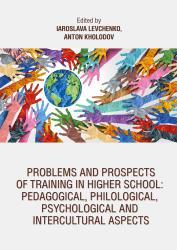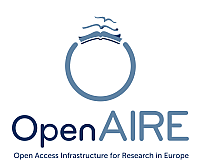Principles of the structure and functions of work programs of curriculum disciplines of the linguistic cycle for educational migrants
Synopsis
Teaching of educational migrants the language of the host country is an important task for the development of the world educational space. Possession of the language of education and socio-cultural communication, a certain level of communicative competence is a necessary prerequisite for the ability of an inophone student to master a future specialty, to form professional competence. An actual linguistic-methodical problem is the determination of the principles of the development of work programs for educational disciplines of language training of educational migrants. The authors of the chapter described the structure, developed a system of principles for building such programs, defined their functions, described the invariant and variable components of the competencies of foreign students of higher education in accordance with the tasks of language acquisition, characterized the teaching methods, evaluation criteria, and control tools. The proposed algorithm can be applied to create programs of disciplines of the linguistic cycle for students of higher education in foreign universities.
Downloads
Pages
Published
Categories
License

This work is licensed under a Creative Commons Attribution-NonCommercial-NoDerivatives 4.0 International License.








